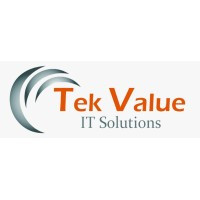Qualified candidates will be comfortable architecting scalable ML systems as defining vision, mentoring talent, and influencing senior stakeholders; think beyond models, creating frameworks and methodologies that set the standard for data science excellence.
Key Responsibilities:
- Define and drive the vision for data science, identifying transformative opportunities across the enterprise.
- Design, develop, and deploy production-grade machine learning systems that directly impact strategic priorities, including operational efficiency, intelligent automation, and client personalization.
- Develop new frameworks and reusable methodologies to advance experimentation, model interpretability, and decision intelligence at scale.
- Serve as a thought partner to executive leadership, translating business challenges into data science strategies and articulating impact through clear storytelling.
- Establish and uphold best practices in data science operations — including reproducibility, model governance, and ethical AI principles.
Qualifications:
- 3-8+ years of experience in data science, with a strong portfolio of impactful, end-to-end solutions in production environments.
- Expertise in Python and machine learning libraries (e.g., scikit-learn, XGBoost, TensorFlow, PyTorch).
- Deep experience with SQL and manipulating large-scale datasets across structured and unstructured formats.
- Proven experience framing ambiguous business problems into structured, analytical solutions with measurable ROI.
- Strong communication skills, with the ability to synthesize complex ideas for both executive and technical audiences.
- Must be energized by ambiguity, unafraid to challenge convention, and excited to bring cutting-edge research into practical, measurable outcomes.
Preferred Qualifications:
- Experience with cloud platforms (Databricks, Azure, and/or Snowflake), containerization (e.g., Docker), and CI/CD for ML.
- Advanced understanding of LLMs and generative AI, including fine-tuning, RAG pipelines, and prompt engineering.
- Familiarity with causal inference, uplift modeling, or reinforcement learning in real-world systems.
- Background in insurance, financial services, or similarly regulated industries.
- Experience in leading cross-functional initiatives that combine data engineering, product, and business domains.















